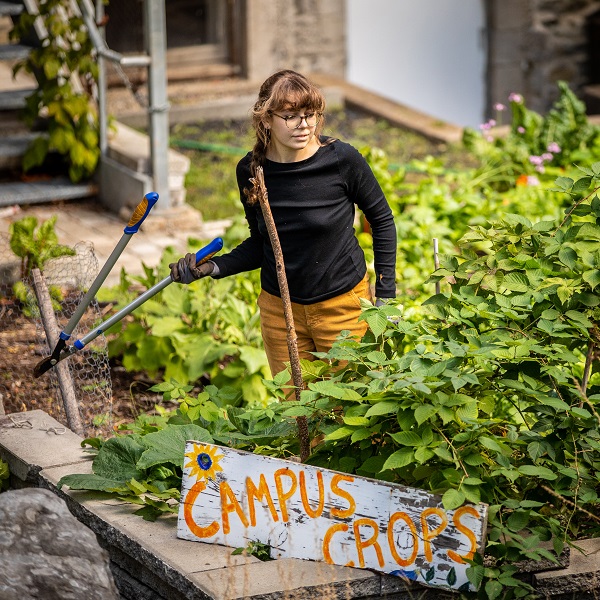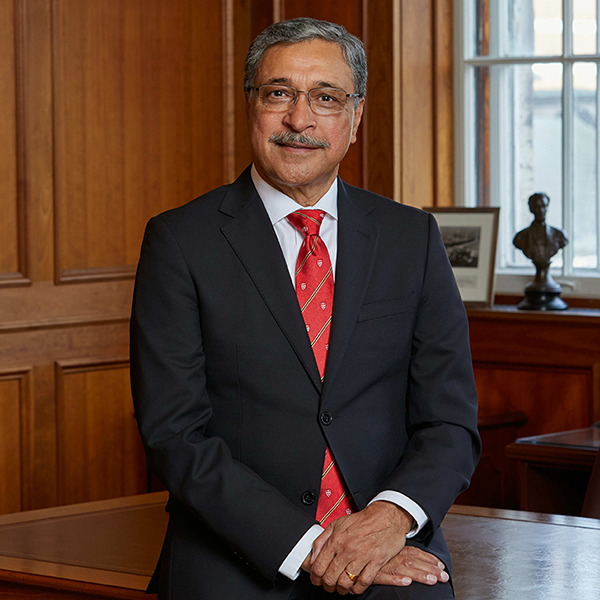McGill PhD computer science student Wael Al-Enezi, who hails from Jordan, found the temperature in Montreal “very comfortable” from the start of school until early November.
“I’m worried to say ‘Oh, is that it?’” Al-Enezi laughed. “But I think I should wait a little bit longer. I’m sure it’s going to be much, much colder than this.”
And snowier.
There was no snow yet in Montreal when Al-Enezi and other international students attended the final “Winter 101” information session on Nov. 9. However, a week later an early snowstorm that swept through parts of the United States and Canada left McGill campus covered in white.
McGill’s International Student Services (ISS) stages two Winter 101 sessions and a webinar to help prepare students for Montreal’s harsh winters and suggest how they can make the most of the season. McGill’s Counselling Service leads part of the sessions, offering tips to students as they adjust to a new environment.
What to wear in winter to stay warm is a big preoccupation among new students.
“I think people don’t know what to expect,” says Emily Love, manager, international student development & communications.
The session provides them with a sense of how cold and snowy it can get, and how long winter lasts, says Love, BA’04, MLIS’06. “I think just answering those questions about ‘what am I in for?’”
In addition to Al-Enezi, students from France, Taiwan and Vancouver attended the session on campus.
Love shared information about average monthly temperatures during winter and tips on how to bundle up – including wearing a warm waterproof winter coat with a hood. She cautioned students about the wind chill factor, which can make it feel much colder than the actual temperature.
McGill’s underground tunnels make it possible for students to go between some buildings without going outside. Moreover, McGill ISS stages tours of Montreal’s “underground city,” an extensive underground network of shops and fast-food restaurants that are connected to several subway stations.
But Love also encouraged students to get outside and embrace winter activities like ice-skating and cross-country skiing on Mount Royal where they can rent the equipment. It’s not just about surviving in winter, she said, it’s about thriving in winter.
Nadja Grabovari, MA’07, a psychologist with McGill’s Counselling Service, talked about the challenges of living abroad, including culture shock. For example, international students may run into small talk exchanges when they’re hoping for deeper conversations.
She also touched on homesickness. If it drags on, it can lead to mental health conditions such as depression and anxiety, Grabovari says, so it’s important to talk to family and friends back home and make new friends here.
“It is perfectly acceptable at North American universities to actively seek help when you are having a hard time,” was the message on one slide in her presentation in red font.
While everybody struggles with asking for help, it can be more accentuated with some international students, Grabovari said afterward. Some cultures favour dealing with problems on your own or people go to their community, friends or parents rather than to a professional or a teacher who is seen as an authority figure. Professors here have office hours, Grabovari adds, and are quite accommodating if students need an extension, for instance.
She told the students about the resources available to them at the University, including McGill’s Counselling Service, the Office for Students with Disabilities, and the McGill Office of Religious and Spiritual Life.
During the webinar version of Winter 101 in early November, queries from students included whether it’s possible to walk or bike to campus in the cold and whether people need ear protectors or glasses when they’re outside. Another student wondered if there were hockey lessons at McGill.
McGill ISS has that covered, too. It plans to stage Hockey 101 in January or February, explaining the fundamentals of Canada’s national game and giving out tickets to a McGill Redmen hockey game. After all, you can’t find a more authentic Canadian and Québécois experience than hockey in winter.


